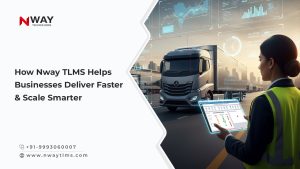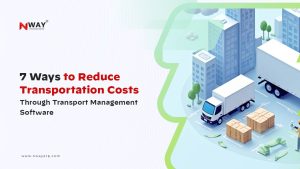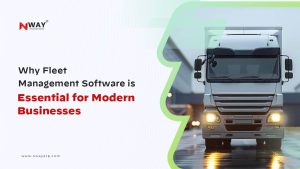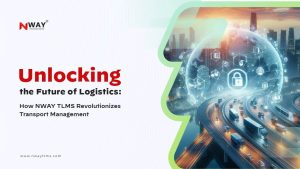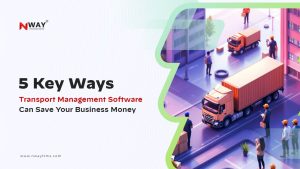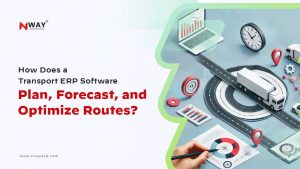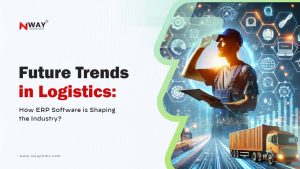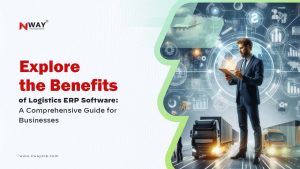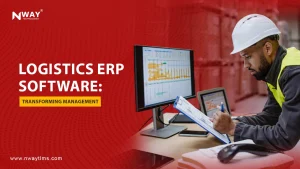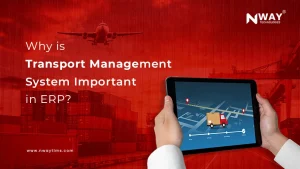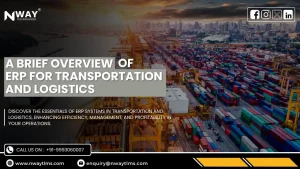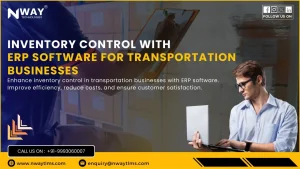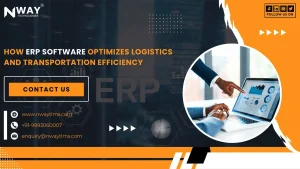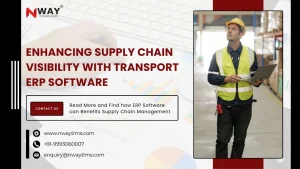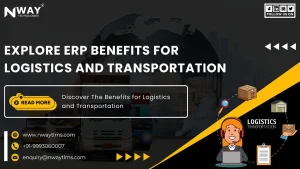How Does a Transport ERP Software Plan, Forecast, and Optimize Routes?
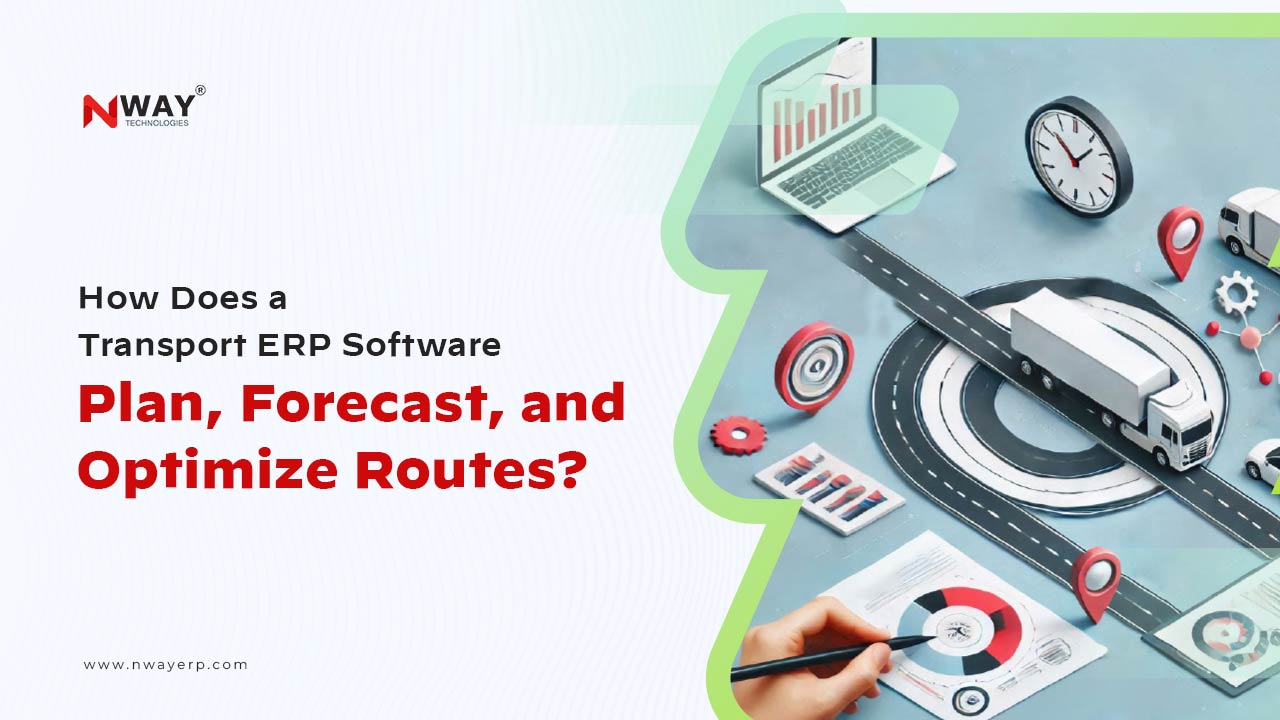
Logistics and transportation are the backbone of any industry and the core distributor of economic growth. Various necessary operations like route planning, forecasting, and optimization are critical for ensuring cost-effectiveness, time efficiency, and high customer satisfaction.
With the increasing complexity of transportation networks and rising customer demand businesses are turning to transport ERP software to streamline these processes.
Explore this blog to learn how transport ERP software can plan, forecast, and optimize routes.
What is Transport ERP Software?
Transport ERP Software is tailored specifically to the needs of the transportation and logistics industry. This software integrates all the transport business processes such as fleet management, route planning, scheduling, inventory management, billing, and customer relationship management into a single platform. It aims to optimize operational efficiency, improve decision-making, and enhance overall customer experience and profitability, for transportation companies.
The Key Features of Transport ERP Software:
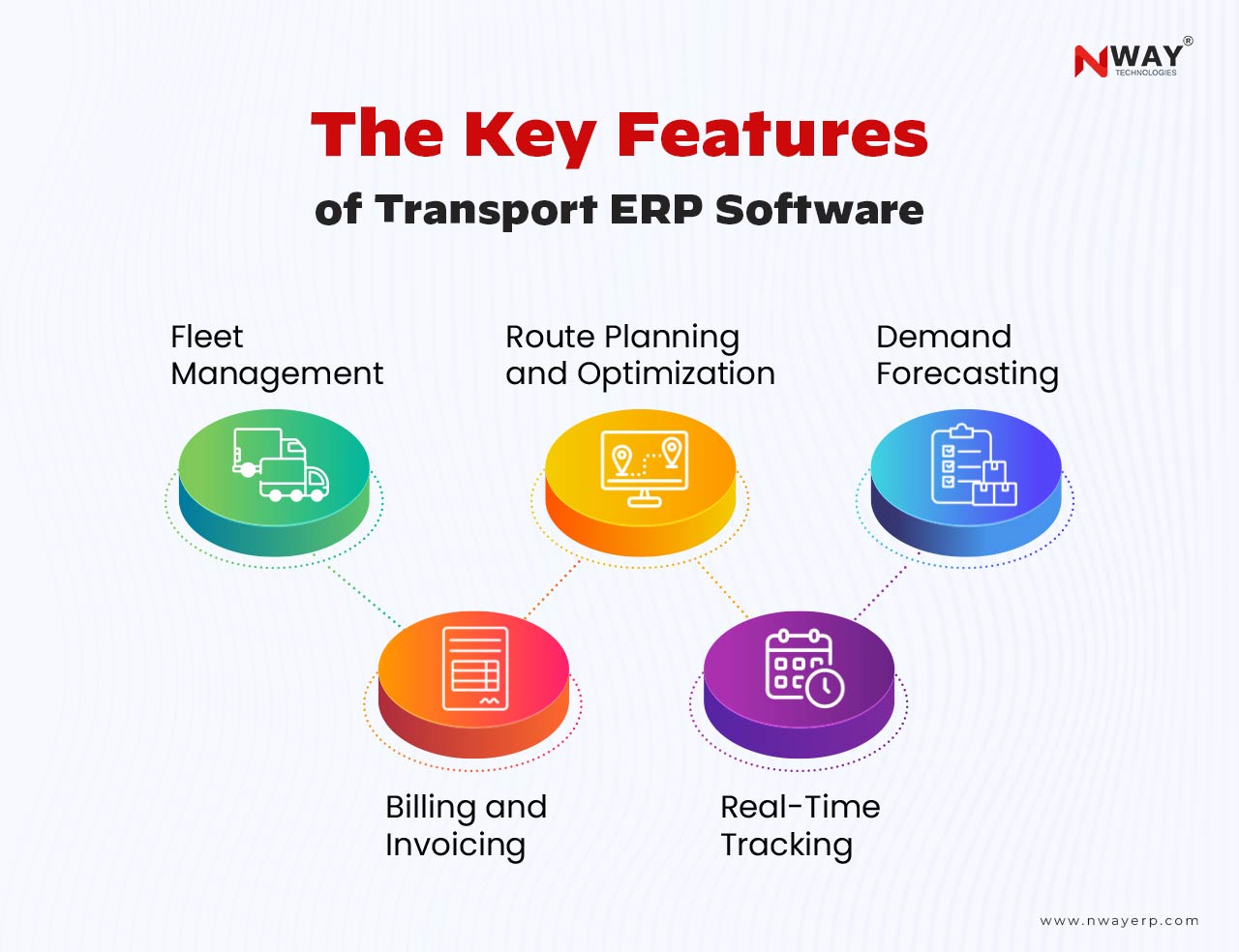
- Fleet Management
Tracks the status, location, maintenance schedules, and performance of vehicles.
- Route Planning and Optimization
It helps create the most efficient routes by considering various factors like distance, traffic, and fuel consumption.
- Demand Forecasting
Analyzes historical data to predict transportation needs and maintain resources accordingly.
- Billing and Invoicing
Handles billing processes to ensure timely and accurate invoicing.
- Real-Time Tracking
Monitors shipments, providing real-time updates to customers and drivers.
How does a Transport ERP Software Plan, Forecast, and Optimize Routes?
Route Planning
Route planning is the process of mapping out the most efficient routes for delivery trucks or freights considering other features like distance, fuel costs, traffic conditions, and delivery deadlines. It also assists in creating optimal routes by improving the manual route planning process.
It includes factors like:
- Data Integration
It helps integrate data from various sources such as GPS, real-time traffic updates, weather forecasts, and customer locations. This integration enables the software to provide the most accurate and feasible routes, reducing delays and fuel consumption.
- Dynamic Routing
It helps businesses to plan dynamic routes, meaning that the system can adjust in real time based on changing circumstances like road conditions, accidents, and unexpected delays. This ensures that the deliveries are completed on time, even when foreseen changes are required.
- Multiple Constraints Consideration
It can manage constraints such as driver working hours, vehicle capacity, delivery time windows, and specific customer requirements. This ensures that routes are not only efficient but also compliant with regulations.
Forecasting
Forecasting predicts future demand for transportation services, helping companies better manage their resources, reduce costs, and improve service levels. Transport ERP software helps in using historical data, trends, and advanced algorithms to forecast demand and plan accordingly.
It includes factors like:
- Historical Data Analytics
Analyzing historical data from past deliveries, ERP software helps predict future transportation needs. This can include expected demand at specific times of the year, geographic areas with higher delivery volumes, or certain product types that require more frequent transportation.
- Demand Forecasting
An ERP software for transport provides effective demand forecasting tools. With the data, businesses can plan for seasonal fluctuations in transportation demand.
- Capacity Planning
ERP software also forecasts the availability of resources, including fleet and manpower, allowing for better capacity planning. Businesses can allocate resources, and manage vehicles and drivers to the right routes based on the forecast, ensuring they avoid underutilization or overloading their fleet.
Route Optimization
Route optimization is the most important aspect of creating the entire transportation strategy. It ensures that the businesses use their fleet efficiently. Good transport and logistics software provides advanced algorithms and data-driven insights to optimize routes, reducing fuel consumption, operational costs, and other delivery routines.
It includes factors like:
- Shortest Path Algorithms
ERP software typically provides the shortest path algorithms. This helps calculate the quickest route from the starting point to the destination.
- Real-Time Traffic Data
This can be considered as the key aspect of the transport and logistics ERP software, as it provides real-time traffic data in the route optimization process. This also helps businesses to make adjustments to routes avoiding congested areas and saving time, money, and fuel.
- Multi-Stop Optimization
With ERP software, construction companies can optimize their multi-stop routes. It helps delivery companies who have multiple locations to deliver items in a single trip. By analyzing the best sequence of stops, the system ensures that the vehicle follows the most fuel-efficient routes, reducing unnecessary deviations.
- Cost-Effective Routing
The transport industry involves various expenses that need to be controlled. A transport ERP software provides businesses with efficient optimization of resources that reduces unnecessary costs. Factors like fuel consumption, vehicle wear and tear, labor cost, and most of all, it suggests routes that save time and reduce overall operating costs.
Conclusion
Transport ERP software is changing the dynamics of how transport and logistics businesses were working years ago. It is versatile in planning, forecasting, and optimizing delivery routes. Leveraging advanced algorithms, real-time data integration, and other features can help improve operations, reduce costs, improve efficiency, and deliver a better customer experience. Contact us now to check how transport ERP software can enhance your operations like never before.
Let’s make running your construction business a little less crazy.
Subscribe for weekly insights.
Recent Posts



